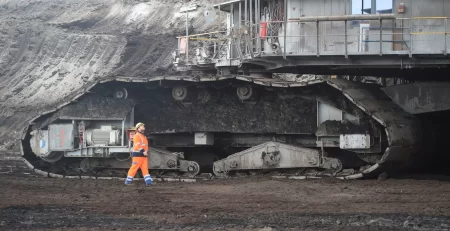Navigating Policy Shifts: Government Policies and the Oil and Gas Industry
The oil and gas industry, a cornerstone of global energy supply, operates within a complex framework shaped by government policies and regulations. These policies influence various facets of the industry, including exploration, production, environmental standards, and market dynamics. As governments worldwide respond to climate change concerns and seek sustainable energy solutions, the impact of their policies on the oil and gas sector is profound and multifaceted. In this article, we delve into the intricate relationship between government policies and the oil and gas industry, exploring the challenges and opportunities it presents.
1. Regulatory Frameworks and Environmental Standards:
Government policies set the regulatory frameworks that govern the oil and gas industry. Regulations encompass safety standards, environmental impact assessments, and emissions controls. Stricter environmental standards, often influenced by international agreements and climate change commitments, drive the industry toward cleaner practices, pushing for innovations in emissions reduction technologies and sustainable drilling methods.
2. Subsidies and Taxation:
Government subsidies and taxation policies significantly impact the economics of oil and gas production. Subsidies can incentivize exploration and extraction activities, making certain projects financially viable. Conversely, taxation policies, including extraction taxes and royalties, influence the profitability of oil and gas companies. Changes in taxation can affect investment decisions, exploration strategies, and overall industry growth.
3. Energy Transition and Renewable Energy Incentives:
Governments, in response to climate change concerns, are increasingly promoting renewable energy sources. Subsidies, incentives, and favorable policies for solar, wind, and other renewable technologies create a competitive environment for traditional fossil fuels. The transition toward renewables influences investment patterns within the industry, leading to diversification strategies and investments in clean energy projects.
4. Geopolitical Considerations and Trade Policies:
Geopolitical tensions and trade policies impact oil and gas markets. Tariffs, trade agreements, and political conflicts can disrupt the flow of oil and gas resources, affecting supply chains and prices. Political stability and international relations play a pivotal role in shaping the global oil and gas landscape, impacting both producers and consumers.
5. Research and Development Funding:
Government funding for research and development (R&D) initiatives directly influences technological advancements within the industry. Investments in R&D drive innovation in exploration techniques, drilling technologies, and environmental solutions. Collaborations between governments, research institutions, and private enterprises often lead to breakthroughs in efficiency and sustainability, shaping the industry’s future capabilities.
6. Climate Policies and Emission Reduction Targets:
Governments worldwide are setting ambitious emission reduction targets to combat climate change. These policies drive the adoption of cleaner technologies and alternative fuels within the industry. Oil and gas companies are compelled to invest in carbon capture and storage technologies, energy efficiency measures, and renewable energy projects to align with these climate policies, ensuring long-term viability in a low-carbon economy.
In conclusion, the impact of government policies on the oil and gas industry is transformative, driving innovation, sustainability, and diversification. While challenges arise from shifting policies and market dynamics, they also present opportunities for companies to adapt, invest in cleaner technologies, and contribute to a more sustainable energy future. Collaboration between governments, industry stakeholders, and research institutions is crucial to navigating these policy shifts effectively, ensuring a balance between energy security, economic growth, and environmental stewardship.











Leave a Reply